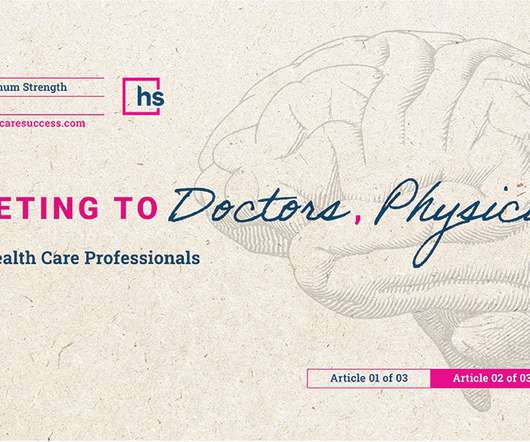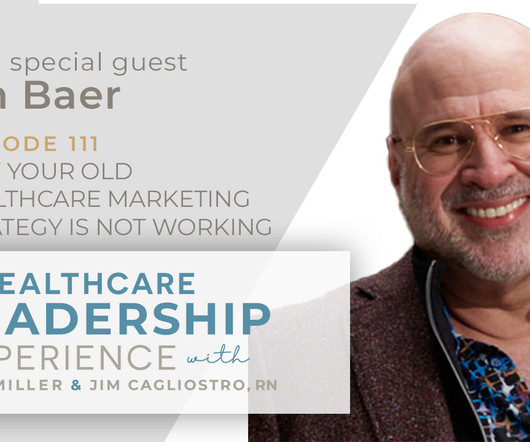How to Market to Doctors, Physicians, and Other Health Care Professionals
Healthcare Success
JULY 5, 2022
Marketing to doctors, physicians, surgeons, and other health care professionals can be extremely challenging, complicated, and expensive. What’s more, most doctors work in a hospital or multilocation medical practice, making it even more challenging to identify key decision-makers. Step 1: How to Define Your Doctor Audience .























Let's personalize your content